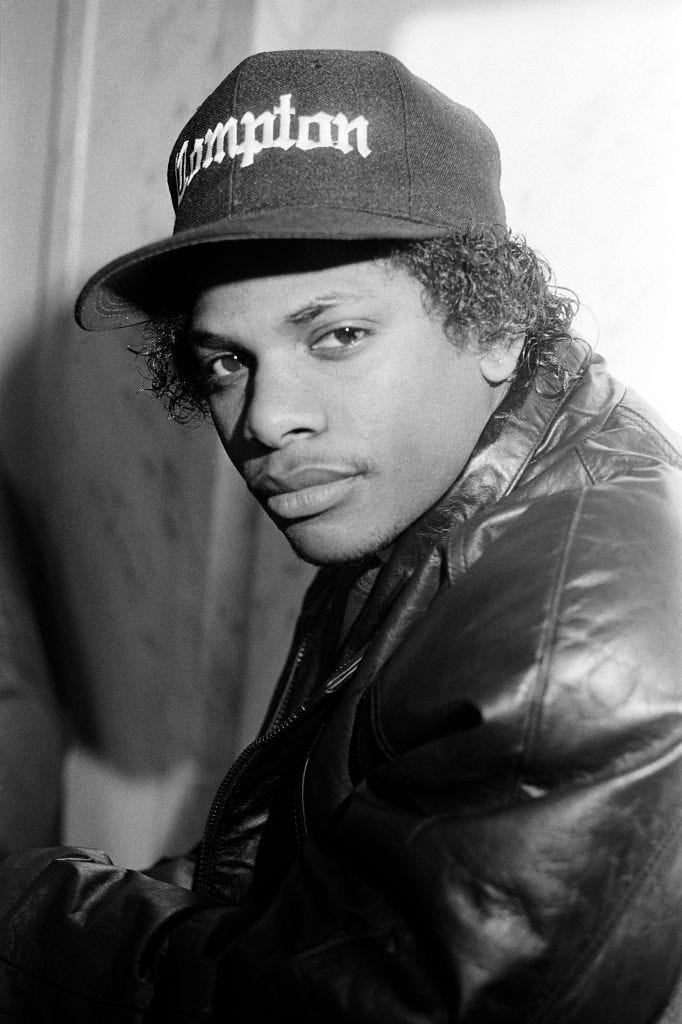Remembering Eazy-E
Get the Point!
While it seems like yesterday, 30 years have passed since rap legend Eric "Eazy-E" Wright died from AIDS; I remember exactly where I was when I heard the news—Kenneth Taite and I were about to run a whole court (play basketball) at what was then Southside Park in Tallahassee (now Jack Mclean Park) when a dude drove up, hopped out of his car and shouted that he just heard on the radio that Eazy died in Los Angeles. Game play stopped for a few moments as we all quickly reminisced on his life and lyrics. While the lot of us could easily fathom Eazy being killed in a jack or a drive-by, learning that he had AIDS—and died from the disease—was sobering for us all as then 20 something year old men who had unwisely engaged in our share of unprotected sex with women due to the folly of youth.
As the decades have drifted by, I've found myself at odds with my Generation X youthful exuberance for some of the lyrics that Eazy and NWA, 2 Live Crew, and countless others popularized through their music. More specifically, I realize that these lyrics degraded Black women—and I/we were part of that degradation; to know better is to do better and for my past defense of the same during a forum at Spelman College that featured the great Pearl Cleage trying to tell me and the Florida Boyz how wrong we were in defending the indefensible, I humbly apologize!
Looking back, I am also ashamed in the fact that during this era, many white male Gen X members bought gangsta rap records and tapes at high numbers, a fact which made these artists rich and as a byproduct gave Gen X non melanated folks license--at least within their own minds--to objectify Black women while reducing the sum of Black life and culture to the poetic stories these artists told about sex and sexuality! An objectivizing, I remind, that stood in contrast to their seeking to comprehend the very salient stories these Black artists told about the effects of white supremacy and police brutality on Black neighborhoods and achievement during the Nixon, Reagan, and Clinton eras! They, too, should apologize and recognize their errors, but I won't hold my breath because that's never been the way for the unrepentant and self righteous benefactors of American made white supremacy.
Thus, the tale of three Eazy's 30 years after his passing, one being a story of overcoming odds to make it big in the entertainment industry, the second being a cautionary tale about living life in excess be it sex, drugs, or misogyny, and third as a reminder that when it comes to Black art, many non melanated connoisseurs in my generation may love our "rhythm," but they actively contribute to our "blues" by replacing their old black Kings, Raiders, and NWA hats with the red MAGA hat of oppression.


